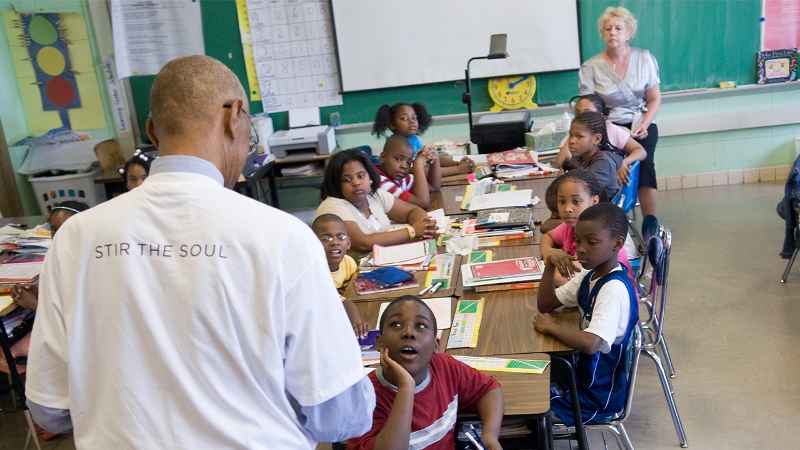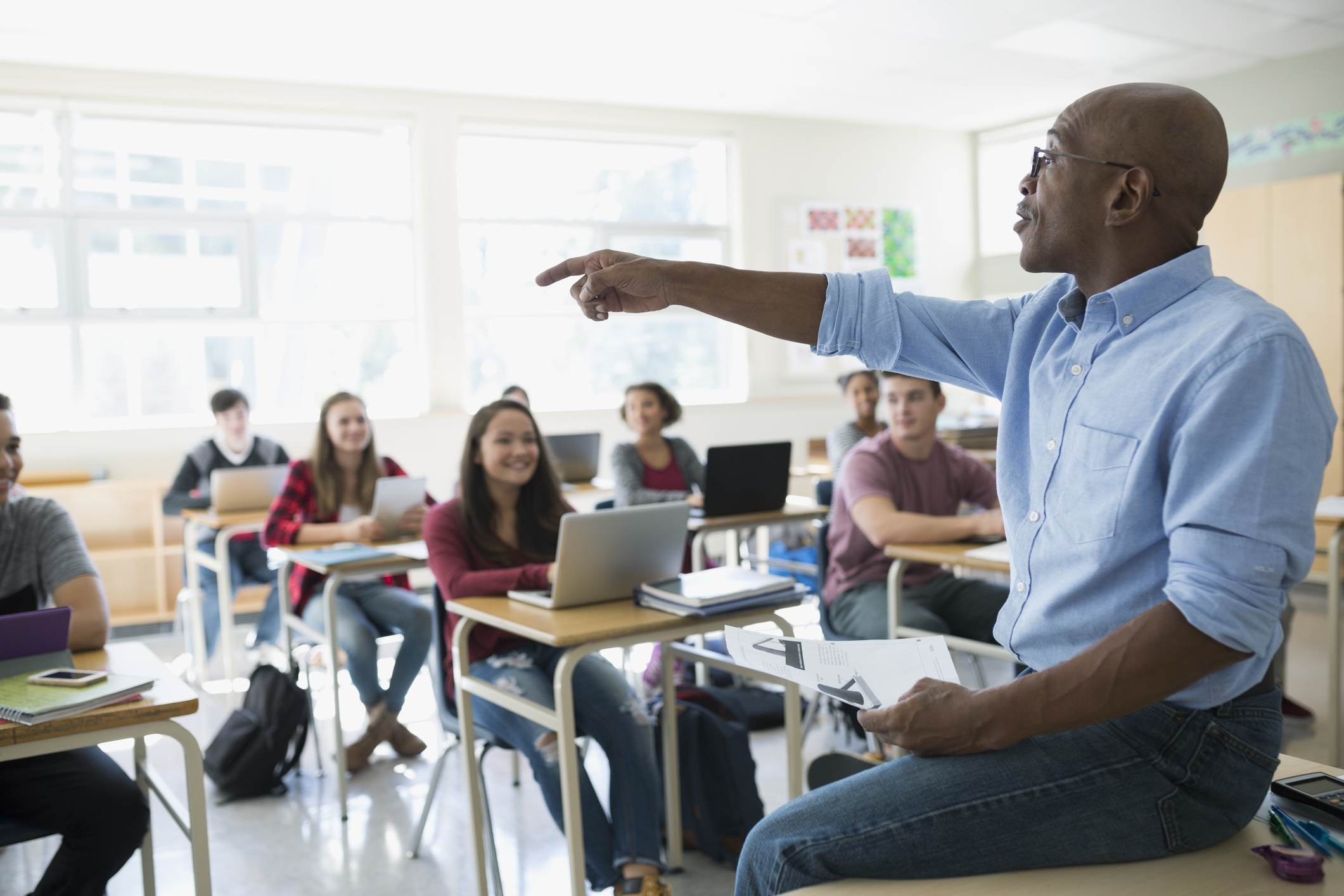Affordable Primary Science Tuition Singapore for All Learning Needs
Affordable Primary Science Tuition Singapore for All Learning Needs
Blog Article
Discover the Important Advantages of Recognizing Main Scientific Research for Young Learners
The importance of main science education for young learners prolongs far beyond plain knowledge purchase; it acts as a basic pillar in creating important skills such as essential thinking, problem-solving, and imagination. Involving with clinical principles via interactive and inquiry-based tasks not just grows inquisitiveness yet additionally prepares for resilient, confident learners. As we check out these benefits even more, it ends up being clear that the ramifications for future scholastic and individual growth are profound. Nevertheless, what details approaches can instructors use to make best use of these benefits?
Enhancing Essential Believing Skills
Cultivating important believing skills in young students is essential for their cognitive growth and future academic success. Critical thinking enables kids to evaluate details, assess proof, and make notified choices, which are important abilities in today's information-rich society. By involving in scientific questions, young learners can improve these abilities as they check out principles through trial and error, observation, and thinking.
In main scientific research education, teachers can facilitate essential thinking by motivating pupils to ask questions, create hypotheses, and carry out experiments. This hands-on strategy allows kids to exercise problem-solving and create logical reasoning abilities. When pupils investigate the properties of materials or the principles of activity, they learn to examine their searchings for critically and attract conclusions based on evidence.
In addition, conversations and collective projects can advertise crucial thinking by supplying opportunities for learners to express their thoughts, difficulty presumptions, and consider diverse point of views. By creating a supportive atmosphere that values inquiry and reflection, educators can nurture critical thinking abilities that equip young learners to become independent thinkers and long-lasting students. Inevitably, improving these skills lays a durable foundation for their future academic undertakings and personal development.
Cultivating Interest and Exploration

Primary scientific research education supplies an organized environment where young students can explore numerous phenomena via hands-on experiments and observations. By permitting them to engage with materials and take part in inquiry-based understanding, teachers develop chances for youngsters to develop theories, test their concepts, and reason. Such experiences support a sense of wonder and exhilaration about science.

Structure Confidence in Issue Fixing
Structure confidence in analytical is a crucial component of main scientific research education that equips young learners to approach challenges with durability and creativity - primary science tuition Singapore. When kids are motivated to engage with scientific principles via hands-on tasks and inquiry-based discovering, they establish vital skills in crucial thinking and analysis. This procedure not only enhances their understanding of clinical principles however likewise promotes a feeling of possession over their discovering
To develop confidence, educators ought to create a helpful environment where errors are click for source viewed as opportunities for growth instead of failings. This urges trainees to take dangers and explore different solutions to issues. By providing scaffolding and support, teachers can assist pupils navigate intricate tasks, slowly raising their self-reliance in analytic situations.
Additionally, joint understanding experiences, such as group tasks or experiments, can further improve trainees' confidence as they discover to express their ideas and pay attention to others' perspectives. These interactions nurture social skills and enhance the idea that problem-solving is usually a cumulative endeavor. Eventually, growing self-confidence in analytical prepares young students for future academic difficulties and outfits them with the devices essential for lifelong discovering.
Urging Creativity and Innovation
In the realm of main science education, urging creativity and development is necessary for growing a vibrant knowing atmosphere. By fostering a culture where young learners can explore concepts and experiment openly, teachers assist students create essential believing skills and an interest for exploration. Imagination in science urges kids to ask questions, design theories, and take part in hands-on tasks that promote their creative imagination.
Incorporating open-ended tasks and inquiry-based understanding right into the curriculum allows pupils to reveal their unique viewpoints and options. When charged with resolving an issue associated to their environment, trainees can brainstorm numerous strategies, leading to inventive results that display their why not check here creativity. This not just strengthens their understanding of clinical principles yet also instills a sense of ownership over their understanding procedure.
Furthermore, creative science education nurtures collaboration among peers, as trainees usually share concepts and improve each other's insights - primary science tuition Singapore. This collaborative spirit promotes not only innovation but likewise necessary social abilities. Hence, by focusing on creative thinking and innovation in primary scientific research education and learning, we encourage young students to assume seriously, welcome challenges, and imagine opportunities, laying a solid foundation for lifelong learning and exploration
Getting Ready For Future Discovering Difficulties
Young students' capacity to browse future learning obstacles depends upon a strong structure in main science education. This foundational understanding gears up students with crucial believing skills and a methodical method to problem-solving, vital for tackling complex concerns in an ever-evolving world. Primary scientific research promotes inquiry-based learning, urging trainees to ask questions, discover hypotheses, and participate in hands-on experiments.
As they establish these abilities, students become experienced at examining data, identifying patterns, and drawing informed verdicts. Such proficiencies are vital not just in scientific fields yet likewise in math, modern technology, and design (STEM), where interdisciplinary knowledge is increasingly critical.
Furthermore, main scientific research education and learning cultivates a sense of interest and strength in young students, enabling them to see difficulties as chances for development. As they encounter and conquer challenges in their scientific expeditions, they construct self-confidence in their ability to introduce and adjust.
Ultimately, a strong structure in primary science not only prepares young students for academic pursuits but also equips them with the tools required for lifelong knowing and versatility in a rapidly altering worldwide landscape. By spending in main science education, we are buying the future capacity of our learners.
Final Thought
Comprehending primary science is important for young students, as it promotes important reasoning, inquisitiveness, a knockout post and creative thinking. Involving with clinical principles with hands-on experiments improves problem-solving abilities and constructs durability. This foundational knowledge not only gears up students to analyze data and acknowledge patterns however likewise nurtures an inquiry-based state of mind. Eventually, the advantages of main science education prepare youngsters for future scholastic quests and instill long-lasting knowing habits essential for thriving in an ever-evolving globe.
The significance of key science education and learning for young students prolongs much past mere understanding procurement; it serves as an essential column in creating important abilities such as essential thinking, analytical, and creative thinking. By developing a supportive atmosphere that values query and representation, educators can nurture important assuming skills that empower young learners to end up being independent thinkers and long-lasting students. Therefore, by prioritizing creative thinking and innovation in primary science education and learning, we encourage young students to think critically, welcome challenges, and visualize opportunities, laying a strong structure for long-lasting understanding and exploration.
Young learners' capacity to browse future knowing obstacles pivots on a solid structure in main science education.Comprehending key science is critical for young learners, as it fosters important reasoning, curiosity, and imagination.
Report this page